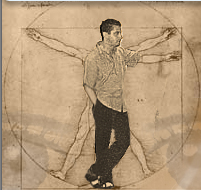| Home > Papers > Intentionality |
|


| Sitemap |
| Print view |
| Login |
Intentionality
"What Is Inner Awareness?” Forthcoming in D. Bordini, A. Dewalque, and A. Giustina (eds.), Consciousness and Inner Awareness, CUP.
This paper tries to characterize the intentional structure of the inner awareness we at least sometimes - and on some views of always - have of our concurrent conscious experiences; it does so by identifying the characteristic content as well characteristic attitude invoved in such inner awareness.
“The Intentional Structure of Moods.” Philosophers' Imprint 2019.
I argue that intentionalists are right to claim that moods such as anxiety and eurphoria represent the world as a whole, or things indiscriminately, as menacing or as wonderful - but that they must construe menacingness and wonderfulness as built into the mode or attitude of these moods, not their content.
“Phenomenal Intentionality and the Perception/Cognition Divide.” Sensations, Thoughts, Language: Essays in Honor of Brian Loar 2019.
Considers how a phenomenal intentionalist might account for the difference between perceptual experience and conscious thought. A companion piece is "The Perception/Cognition Divide: One More Time, with Feeling."
“Belief-that and Belief-in: Which Reductive Analysis?” Non-Propositional Intentionality 2018.
I present and defend as plausible Brentano's unusual view that all judgments are a matter of believing in something or disbelieving in something (hence an objectual rather than propositional attitudes).
“Brentano's Mature Theory of Intentionality.” Journal for the History of Analytical Philosophy 2016.
I argue that Brentano's mature theory of intentionality construed intentionality as a non-relational property of subjects, a sort of variant of adverbialism.
“Two Notions of Mental Representation.” Current Controversies in the Philosophy of Mind 2013.
I argue that there are two notions of mental representation, which I call objective and subjective, and that familiar tracking theories of mental representation account at most only for the former.
“The Phenomenal Intentionality Research Program.” Phenomenal Intentionality 2013.
I review some of the work already done around the notion of phenomenal intentionality and propose a way of turning this body of work into a self-conscious research program for understanding intentionality.
“The Veil of Abstracta.” Philosophical Issues 2011.
I argue that just as the sense-datum theory erected a veil of appearances over the external world, so currently popular accounts of perception in terms of relation to properties erect a veil of abstracta over the concrete world.
“Intentionality and Normativity.” Philosophical Issues 2010.
I argue that Davidsonian claims about the normativity of intentionality work well for non-phenomenal intentionality but not for phenomenal intentionality.
“The Dispensability of (Merely) Intentional Objects.” Philosophical Studies 2008.
The ontology of (merely) intentional objects is a can of worms. If we can avoid ontological commitment to such entities, we should. In this paper, I offer a strategy for accomplishing that. This is to reject the traditional act-object account of intentionality in favor of an adverbial account. According to adverbialism about intentionality, having a dragon thought is not a matter of being related thought-wise to dragons but of engaging in the activity of thinking dragon-wise.
(With Terry Horgan.) “Phenomenal Intentionality Meets the Extended Mind.” The Monist 2008.
We argue that the letter of the Extended Mind hypothesis can be accommodated by a strongly internalist, broadly Cartesian conception of mind. The argument turns centrally on an unusual but (we argue) highly plausible view on the mark of the mental.
“Real Narrow Content.” Mind & Language 2008.
This paper develops a positive account of narrow content designed to neutralize the charge that narrow content is not real content.
“Intentional Inexistence and Phenomenal Intentionality.” Philosophical Perspectives 2007.
The problem of intentional inexistence is posed by the fact that we can think of what doesn’t exist. I sketch a solution to this problem and argue that it’s viable.
“Is Intentionality Dependent upon Consciousness?” Philosophical Studies 2003.
I examine two arguments to the effect that there would be no intentionality if there was no consciousness, due one to Searle and one to McGinn, and defend the second.